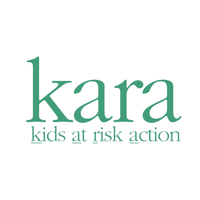- Location
- Hopkins, Minnesota, United States
- Bio
-
Supporting the people, programs and policies that make life better for at risk children.
www.invisiblechildren.org
FREE Weekly Updates; https://www.invisiblechildren.org/email-and-newsletter-signup/
- Companies
-
-
 Minneapolis, Minnesota, United States
Minneapolis, Minnesota, United States
-
- Categories
- Communications Market research Community engagement Public health
Socials
Achievements
Latest feedback
Project feedback
Project feedback
Project feedback
Recent projects
AI-Driven Child Safety Database Prototype
The project aims to develop a prototype for an AI-driven national database that provides critical information and connections to improve the safety and well-being of abused and neglected children in America. The current challenge is the lack of a centralized system that efficiently aggregates and analyzes data to support decision-making and intervention strategies. By leveraging AI technology, the project seeks to create a system that can identify patterns, predict risks, and suggest solutions to stakeholders involved in child welfare. The database will serve as a tool for social workers, policymakers, and child advocacy groups to access real-time information and collaborate effectively. The project will focus on designing a user-friendly interface and ensuring data privacy and security. The ultimate goal is to lay the groundwork for a comprehensive system that can be scaled and implemented nationwide.
Voices for Change: Child Protection Podcast
The project is building a compelling podcast series engaging the community in meaningful conversations about child abuse and child protection in America. The goal is to raise awareness, educate listeners, and inspire action by sharing stories, expert insights, and resources. The podcast series is a platform for discussing the realities, challenges and solutions related to child protection, fostering a more informed and proactive community. Students will apply their knowledge of media production, communication, and social issues to develop content that resonates with a diverse audience. By engaging a community of child friendly constituents in a conversation about the needs of abused and neglected children will help find a path to supporting the people, programs and policies that will heal children and give them the skills they need to succeed in life. By starting conversations about how communities are succeeding and failing in keeping children safe we will build understanding and advocacy for ways to improve their lives. KARA seeks help identifying process, pitfalls, and best practices in podcasting and finding support to make this a success on a larger scale.
AI-Driven Feedback System for KARA
Kids At Risk Action (KARA) is a nonprofit organization dedicated to advocating for at-risk children. To enhance their online presence and better engage with their audience, KARA seeks to implement a user-friendly, AI-driven feedback system on their website. The current feedback mechanism is outdated and lacks the ability to provide real-time, personalized responses to users. The goal of this project is to design and develop an intuitive feedback system that leverages artificial intelligence to analyze user input and generate meaningful, automated responses. This system should be easy to navigate, ensuring that users can effortlessly provide feedback and receive immediate, relevant information. The project will involve researching AI technologies suitable for natural language processing, designing a user interface that aligns with KARA's branding, and integrating the system into the existing website infrastructure. The successful implementation of this project will enhance user engagement and provide KARA with valuable insights into their audience's needs and concerns.
KARA Website Enhancement Initiative
Kids At Risk Action (KARA) is a nonprofit organization dedicated to advocating for the welfare of at-risk children. The current WordPress website serves as a crucial platform for outreach, information dissemination, and community engagement. However, the site requires enhancements to improve user experience, accessibility, and content management. The goal of this project is to optimize the website's functionality and design, ensuring it effectively supports KARA's mission. The project will involve analyzing the existing website, identifying areas for improvement, and implementing changes that align with best practices in web design and user experience. Key tasks include updating the site's layout, enhancing navigation, and ensuring mobile responsiveness. This project provides an opportunity for learners to apply their web development skills in a real-world context, contributing to a meaningful cause.
